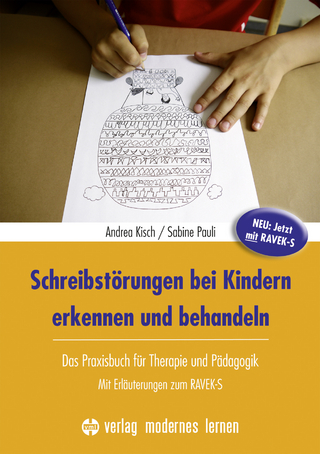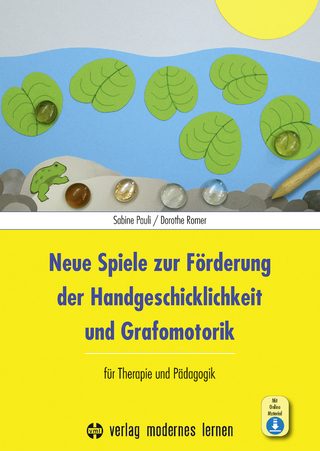
Expressive Arts Education and Therapy
Brill (Verlag)
978-90-04-43086-0 (ISBN)
In Expressive Arts Education and Therapy the reader follows the creation of art-making in tandem with the unfolding of sense-making. A dance theatre lab is the stage for exploration where what was discovered was phenomenologically and collaboratively reflected upon, the participatory nature of the creative work pouring into the research methodology. Creative Process-based Research efficacy is contingent upon the interaction of three poles – the creator, the product and an experience of the internal/external creative process of the creator. All three perspectives comprise the dynamics required of this research methodology in order to understand what is occurring in these three distinct and essential elements of the creative process. What results is an experience of cohesion that consciously describes this interplay.
The author outlines his influences that contributed to both the art-making and sense-making over the seven year research project. His work in experimental theatre in New York, as an educator with The European Graduate School in Switzerland and his studies with philosopher John de Ruiter in Canada are integrated into the world of research in the field of expressive arts. The visceral component of creating clarity is uncovered and articulated. This book inspires new ways of thinking about participatory, collaborative, arts-centered research where the skill of exposing the artist/researcher’s modus operandi for making art and making sense is named in a myriad of ways that call upon the intellect as well as the artist’s intuitive sense of what to focus on and its relevance to education, therapy and global health.
Markus Scott-Alexander, PhD, is senior faculty at The European Graduate School and director of World Arts Organization. Relevant to this writing, his article on the importance of response-time in education, "The Pause", was published in Poiesis.
Foreword: A Philosophy of Inclusiveness
Margo Fuchs Knill and Paolo J. Knill
Foreword: An Outstanding Journey
Sherry Eve Penn-Crawford
Preface
Acknowledgments
1 Introduction: Entering the Dance Theatre Lab
1 A Few Basic Expressive Arts Terms
2 The Writing Style
3 Expressive Arts, Expressive Therapy and Expressive Arts Therapy
4 The Generative, Inclusive Ensemble Way
5 A Brief Background
6 Finding the Lab Theatre: What Happened
7 The Forming of the Question
8 Crystallization of the Question
9 Reducing and Simplifying
10 The Timing of the Project
11 Pre- vs. Cross-Cultural
12 Bringing My Experience to the Work
13 The Project
14 The Writing of the Participants
15 The Participants
16 Costumes
17 Editing Assistants
18 The Process
19 The Practitioner’s Philosophy
20 A Word to the Reader
2 Overview: Enjoying the Rigor: Stepping into the Larger Theoretical Territory
1 How Creative Process-Based Research Works
2 Artist Philosophers
3 The Visceral Intellect
4 Inter-Relatedness
5 Transcend and Include
6 Nectar
7 Let Go and Shape
8 The Liminal Space
9 Difficulty
3 Influences: The Making of a Tapestry
1 Early Experimental Theatre Artists – Ellen Stewart and La MaMa E.T.C.
2 Off-off Broadway – Ching Yeh
3 Focusing and the Felt-Sense – Eugene Gendlin
4 The Ensemble – Jerzy Grotowski
5 Trust the Process – Shaun McNiff
6 Inspiration for the Future – Sherry Penn-Crawford
7 Minstrel of Soul – Paolo J. Knill
8 Creative Connection – Natalie Rogers
9 Poiesis – Stephen K. Levine
10 Visceral Impact – Pina Bausch
11 Let Your Senses Inform You – Elizabeth McKim
12 Poet as Leader – Margo Fuchs Knill
13 Embodied – Daria Halprin
14 The Art of Research – Melinda Ashley Meyer Demott
15 Music as Mother – Margareta Warja
16 Philosophical Influence – John De Ruiter
17 Additional Influences
18 Building a Bridge
4 Getting to the Book – My Methodology: The Way in and the Way Through
1 Introducing the Process
2 Part One: Evolution of the Process
3 Part Two: A Dynamic Research
4 Part Three: Enjoying the Challenge
5 Part Four: Contextualizing the Work
5 Small Group Harvesting
1 Session One: Being the Wellspring
2 Session Two: Shift vs. Insight
3 Session Three: Recognizing the Unseen
4 Session Four: Inclusiveness and the Role of Trust
5 Session Five: Building Congruence
6 Session Six: The Aesthetics of What Nurtures
8 Session Eight: Relaxing into the Pressure
9 Session Nine: Congruency: First Things First
10 Session Ten: Dexterity
11 Session Eleven: Conscious Choosing
12 Reflections on the Harvesting Process
6 Final Reflections: What Was Discovered in What We Explored
1 Artist in Residency
2 Crystallization
3 Co-Creating the Learning Environment
4 Outward Expression
5 Inclusiveness
6 Source-Oriented
7 Being in the Moment
8 Themes and Streams
9 Distilling the Essence
Bibliography
Index
| Erscheinungsdatum | 11.05.2020 |
|---|---|
| Reihe/Serie | Arts, Creativities, and Learning Environments in Global Perspectives ; 3 |
| Verlagsort | Leiden |
| Sprache | englisch |
| Maße | 155 x 235 mm |
| Gewicht | 607 g |
| Themenwelt | Medizin / Pharmazie ► Physiotherapie / Ergotherapie ► Ergotherapie |
| Sozialwissenschaften ► Pädagogik ► Allgemeines / Lexika | |
| Sozialwissenschaften ► Pädagogik ► Bildungstheorie | |
| ISBN-10 | 90-04-43086-5 / 9004430865 |
| ISBN-13 | 978-90-04-43086-0 / 9789004430860 |
| Zustand | Neuware |
| Haben Sie eine Frage zum Produkt? |
aus dem Bereich


